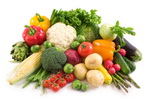|
Sulfur – Unique Partnership With Other Organic CompoundsSulfur is a chemical element on the periodic table with atomic number 16 and is in the unique position of being different from other minerals because it is not used by itself as a nutrient. It is generally found as a component of other organic compounds, such as the vitamins biotin and thiamine and the amino acids cysteine and methionine, and in amino acids it is especially important in the structure of proteins.
The mineral is also important in some of the liver’s drug detoxifying pathways. In its ionic form, sulfate SO4 helps to maintain acid base balance. In metabolic reactions the mineral is an important part of many enzymes and in antioxidant molecules such as glutathione and thioredoxin.
The mineral also is considered the beauty mineral, because of its presence in hair, skin, and nails. Disulfide bonds are responsible for the mechanical strength of the protein keratin in skin, hair, and nails. The mineral also helps to counteract the effects of ageing and diseases of the elderly such as arthritis. Dietary Recommendations None given since the mineral is not found in the body by itself, but in conjunction with organic compounds. Sources of the Mineral Good sources of sulfur are protein foods, such as egg yolks and garlic, lettuce, raspberries, cabbage, kale, turnips, and Brussels sprouts.
Too Little or Too Much Mineral Too little of the vitamin is likely to occur in those with insufficient protein intake, and does not have its own deficiency symptoms. In addition, there has been no reported toxicity or symptoms of when too much of the mineral has been consumed, because once again the mineral does not occur by itself with regard to any deficiencies, the deficiency is in terms of proteins intake.
For other information on nutrition some great references are: • Nutrition – Fourth Edition by Paul Insel, Don Ross, Kimberley McMahon, and Melissa Bernstein • The Vitamin Alphabet – Your guide to vitamins, minerals and food supplements by Dr. Christiana Scott-Moncrieff MB, CHB, MFHOM
Nutrients In Food
|







